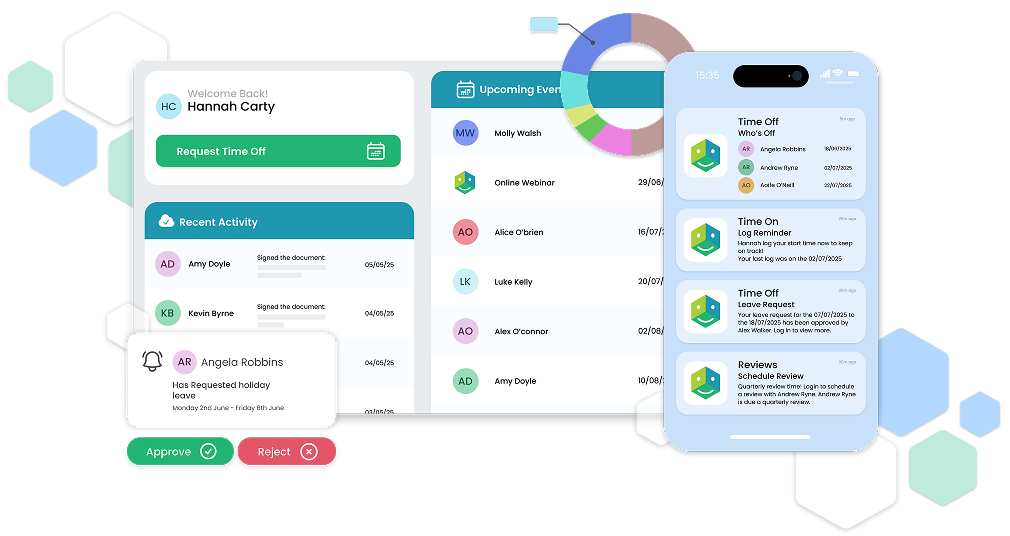Your Employee Value Proposition (EVP) is your sales pitch to candidates. It tells them about the rewards and benefits they can expect to receive if they accept your offer.
You’ll often see talk of a compensation package, learning and development opportunities, and perks like gym memberships, company cars, and stationery stipends—what you don’t see enough of is culture.
A company car gets you from A to B, and gym memberships are fun for the first month, but company culture affects every single thing you do in your job, every day until your departure. Your thoughts and feelings towards work, how you approach and complete tasks, and your relationships with others are dictated by it.
That’s why culture can be the greatest benefit or biggest disadvantage for your employees. Candidates are choosing how they want to think, feel, and behave at a company. That’s what culture means to them.
This is why it’s such a critical feature in your EVP. If you aren’t talking about how your organisation thinks, feels, and behaves, you’re not telling candidates anything about the employee experience.
Why culture matters to employees
Ever had a bad day at work that you just can’t shake? You go home feeling troubled, you get snappy with your family, and when it comes to bedtime, you just can’t seem to fall asleep. As a result, you wake up the next day feeling tired and irritable for another day of work.
Consistent bad days often come as the result of a bad culture. A team leader who imposes impossible deadlines and colleagues who don’t know how to collaborate effectively. An ‘urgent’ task that requires you to be switched onto company emails at all hours. And the worst thing about bad organisational culture is that it doesn’t just impact you during office hours. Routines, relationships, and personal responsibilities all suffer.

During the pandemic, many workers had an opportunity to reevaluate what they wanted from their jobs. Realising just how much time we spend working, culture has become increasingly more important. We don’t just want to feel good on our days off – we want to feel good outside of working hours. Without worrying about what our inboxes will look like on Monday morning.
A good organisational culture makes you feel safe to make mistakes, ask questions, and speak up. Instead of spending your time working and looking forward to the weekend, you enjoy moments within the workday too. Is it surprising that candidates are prioritising positive workplace culture? And is it that much to ask for?
Candidates will want to know what your organisational culture is like before they sign up for the job. And you can tell them about it in your EVP. But before you go spouting company values with little to no evidence to back them up, you need to speak with a very important group of people: your existing team.
Defining and articulating your culture
If you want to sell your culture to candidates, you first need to know what it is. Senior leaders will probably notice that their organisation's culture has changed quite a bit since they first started at the company. As more employees are added to the mixing pot, they each add something different, which makes putting culture into words rather tricky.
The best people to articulate your culture are your existing employees. You could organise a survey or some informal workgroups to talk about culture and define it collectively. It might be simple words and phrases that come out of these activities. It could be value statements and sentiments.

Some people might feel more comfortable submitting answers anonymously, while others might want to discuss them collectively. Be aware that when you discuss these things as a group, some members might influence others. Make sure you’re giving your people plenty of ways to share their thoughts with you.
For the parts that are harder to articulate, leaders should take some time to observe their employees in their natural habitats. You might notice that your teams work brilliantly on their own, but tend not to collaborate cross-departmentally. Perhaps saying please and thank you, and expressing gratitude at every opportunity has become a social norm at your organisation. Make a note of these unspoken behaviours – they’re just as important as the ones you can articulate.
Next in line – Employee value proposition (EVP)
Once you’ve identified the key components of your company culture, you can start expressing it in your EVP. Sense-check your EVP with your employees to confirm it’s true to life. Remember: what appeals to your existing employees will probably appeal to candidates just like them. Use their insights to guide what you need to say.
As we explored in our latest whitepaper on employee experience and total rewards, candidates are seeking out a great company culture. People want to feel good inside and outside of the workplace, which is why company culture is such an important feature of a good EVP.
But did you also realise you can use your culture to guide the other types of rewards you provide? If your company cares about working as sustainably and ethically as possible, you could offer free bicycle repairs for two-wheeled commuters or provide the option to use a workday for charity volunteering.
These rewards align with your culture and demonstrate your commitment to your company values, not just inside the organisation but outside of it too. It shows candidates that your business is authentic and purposeful.
Your EVP should showcase all the ways you provide value for employees. A great culture is rewarding in every moment of every day for employees – and they already know that. If you’re not positioning culture as a benefit at your company, you could be missing out on the perfect candidate.









